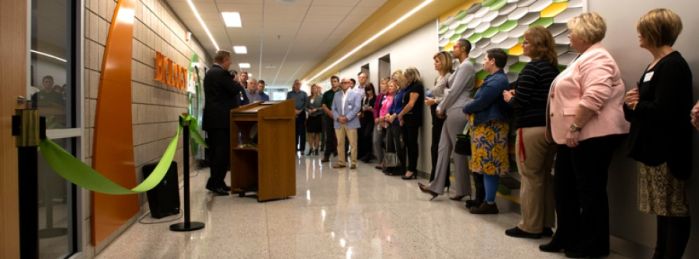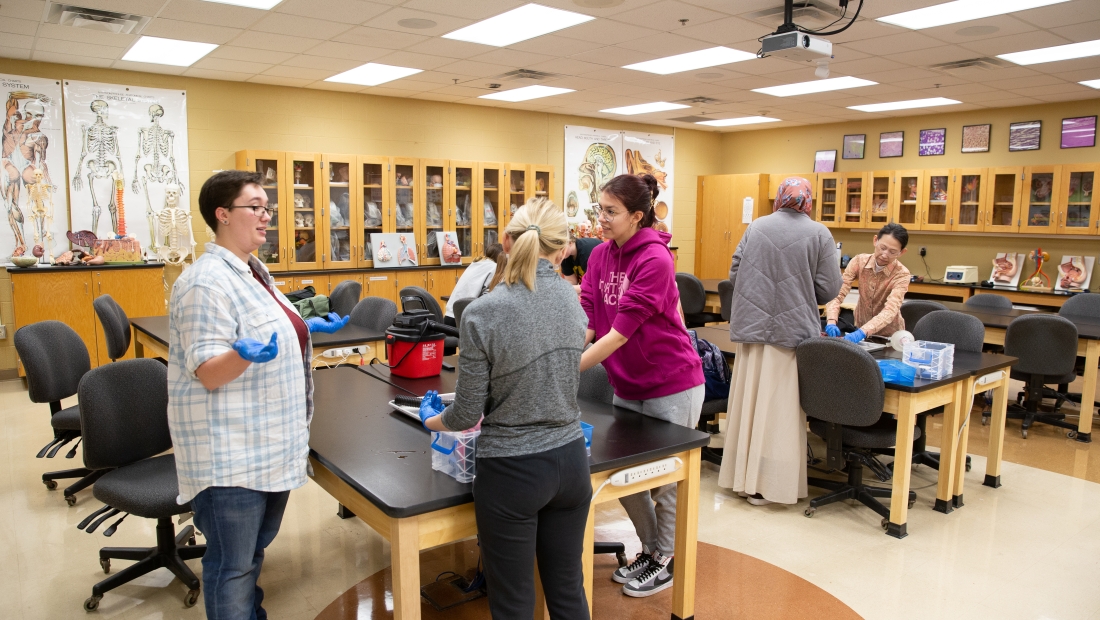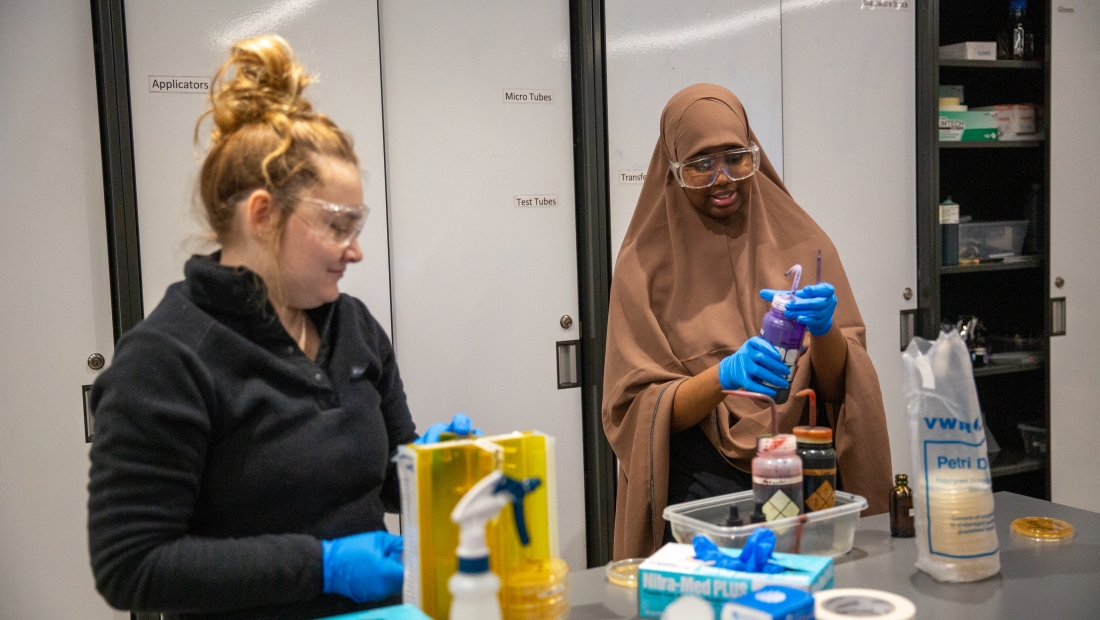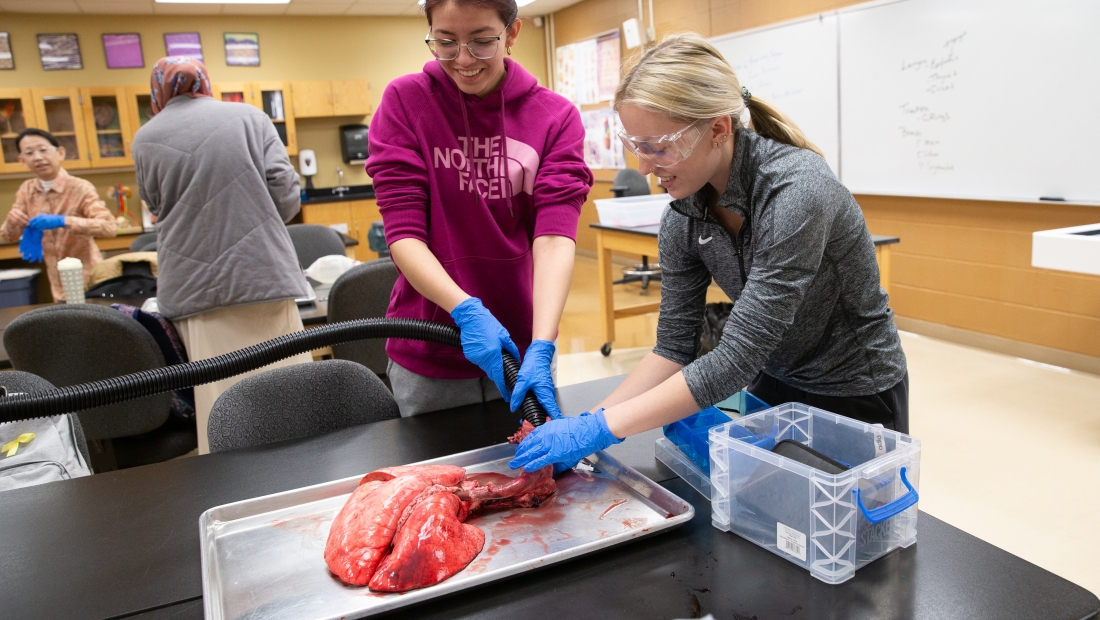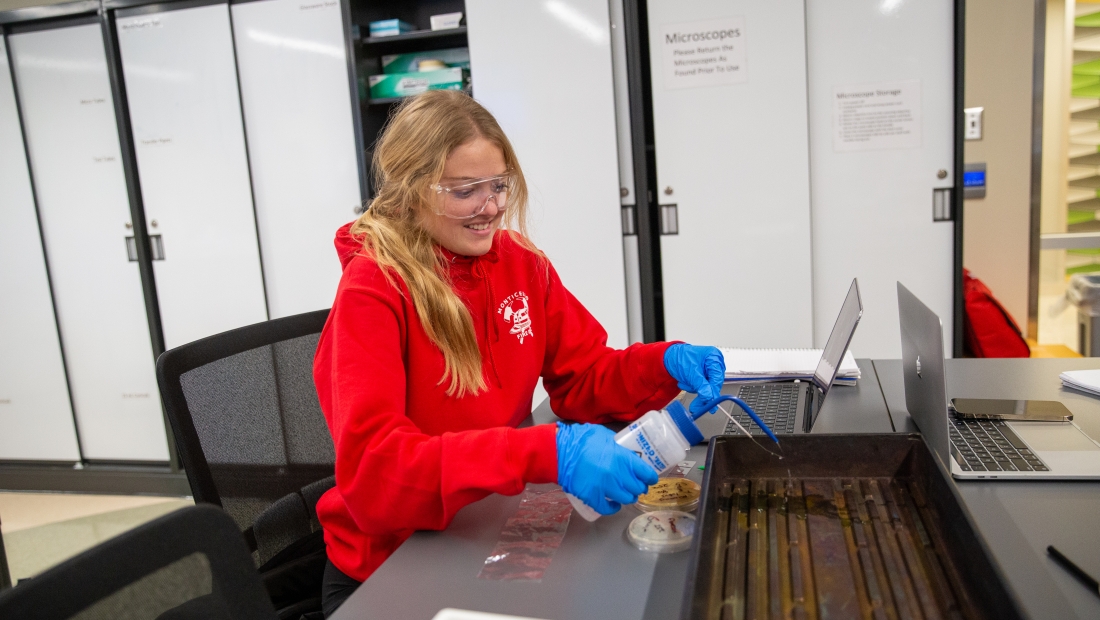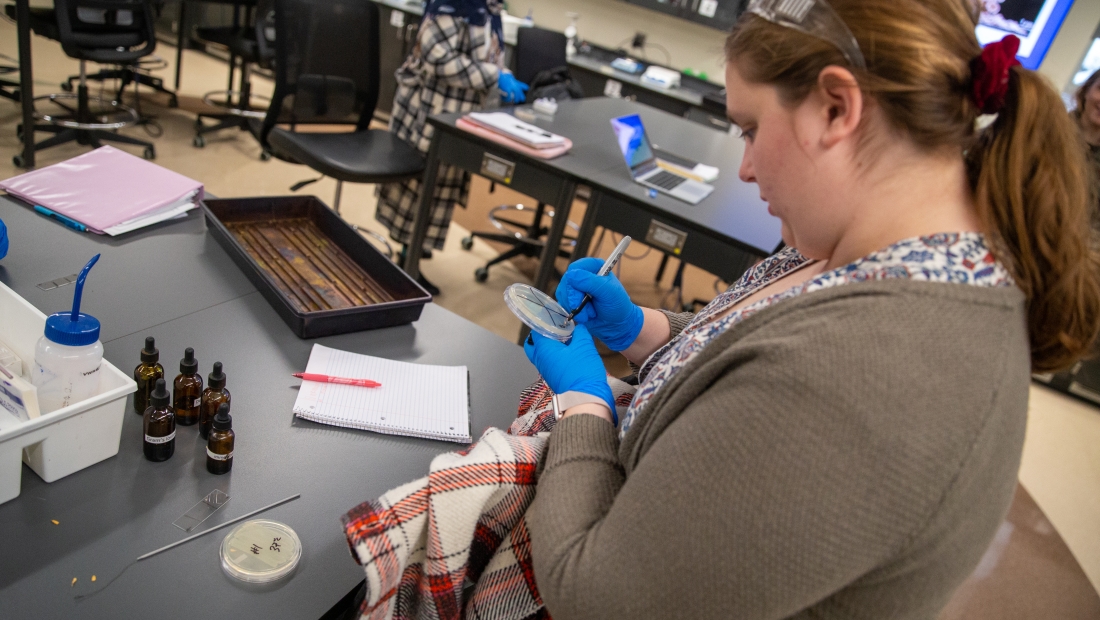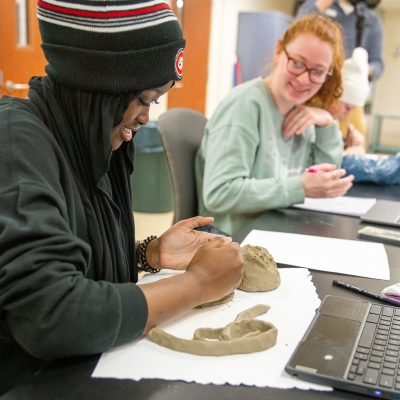DEGREES IN Biology Transfer Pathway
Biology Transfer Pathway Associate of Science
By the Numbers
Why Choose This Program
Our program offers students the opportunity to complete an associate degree that will fully transfer to a Biology bachelor's degree at any one of the seven universities within the Minnesota State System that offers a Biology major. With so many universities to choose from, every SCTCC graduate is bound to find the program right for them.
We have carefully designed our entire curriculum to meet designated bachelor’s degree program requirements. Our requirements guarantee any student who plans to transfer after receiving their initial studies at SCTCC will succeed in their next step of education.
After graduation, students from SCTCC will have the required skills they need for a bachelor’s program. Whether you want to go into a health field or diversify and grow your academic knowledge in biology, we will prepare you for your future education and career.
From Degree to Career
When you choose the Biology Transfer Pathway degree at SCTCC, you’ll save money on your generals before transferring to get your bachelor's degree. By getting your general classes done at SCTCC, it provides a good foundation when you are ready to transfer.
With a degree in Biology from SCTCC, there are several career choices you can pick from. From biology technician, genetics, education, to biochemistry, there is bound to be a profession that is right for you.
Graduates from our Biology program have worked in medical and health related fields like pharmaceuticals, research sciences, biochemistry, dietitians, and medical doctors.
Students can even work as nature and conservation specialists, zoologists, science illustrators, wildlife biologist, and water quality technicians. With so many career choices, our students are guaranteed to find the right career path for them.
Potential Employers
Potential employers for our Biology graduates have opportunities to work with medical equipment manufacturers or even in the health field itself. We teach students the skills required to succeed with potential future employers.
Quick Glance
- Biology Technician
- Medical & Health Fields
- Genetics
- Education
- Biochemistry
- Pharmaceuticals
- Nature/Conservation
- Zoology
- Research Sciences
- Biochemist
- Dietitian
- Medical Doctor
- Science Illustrator
- Water Quality Technician
- Wildlife Biologist
Potential Employers
- Medical equipment manufacturers
- Health Field
At SCTCC, we have designed our Biology program to seamlessly transfer to any Biology bachelor’s degree program for any one of the seven Minnesota State universities. You can choose to attend Bemidji State University, Metropolitan State University, Minnesota State University, Mankato, Minnesota State University, Moorhead, St. Cloud State University, Southwest Minnesota State University, or Winona State University. With your basics covered from SCTCC, you are bound to succeed in any program you choose to move onto.
There are three requirements for a successful transfer to a program of your choice. First a student needs a minimum of 60 semester credits in courses numbered 1000 or above. Second, students need a minimum grade point average (GPA) of 2.0 at SCTCC in courses numbered 1000 or above. Finally, students need a minimum of 20 semester credits applied toward the degree that must be taken from SCTCC.
Requirements for transfer:
- A minimum of 60 semester credits in courses numbered 1000 or above.
- A minimum grade point average (GPA) of 2.0 at SCTCC in courses numbered 1000 or above.
- A minimum of 20 semester credits applied toward the degree must be taken from SCTCC.
Ready to Take the Next Step?
Are you ready to learn more about the Biology Transfer Pathway and being a student at SCTCC?

Fill out this form to receive useful information that's specific to your program.
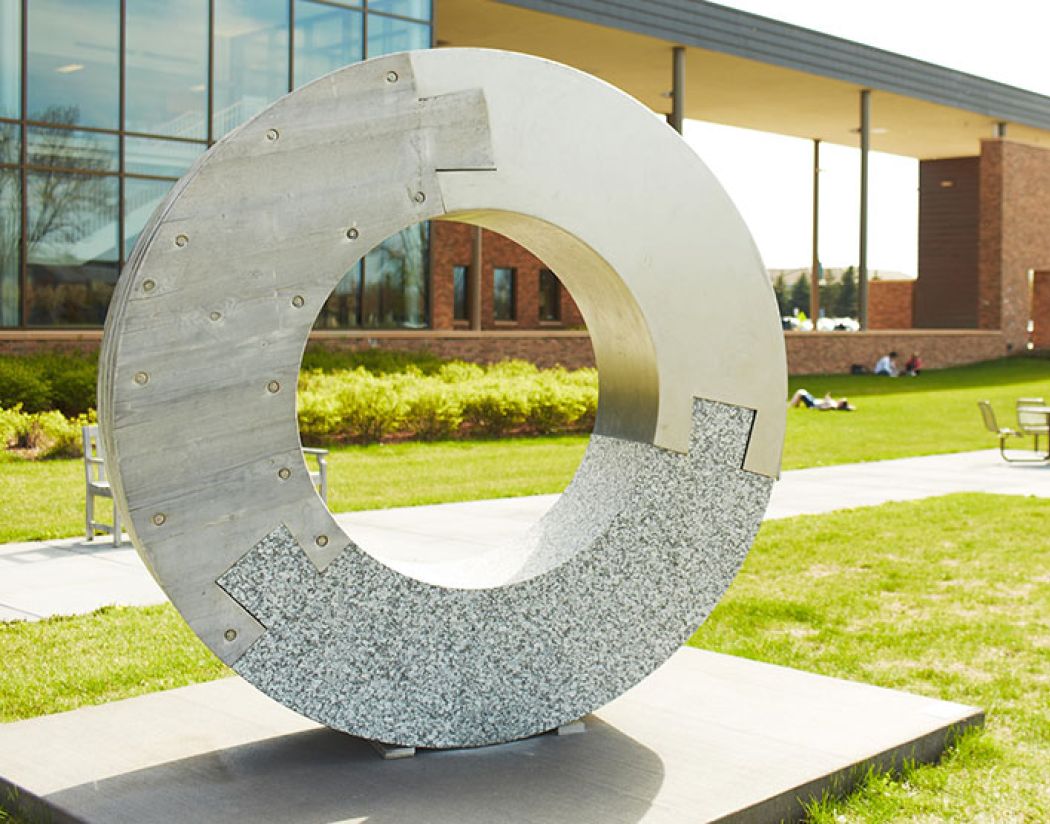
- Call us at 320-308-5089
-
Email us at recruitment@sctcc.edu
- On campus Monday-Friday, 8 a.m.-4:30 p.m.
Visiting campus is an excellent opportunity to learn about SCTCC programs, the application process, and tour the state-of-the-art-labs and classrooms.
Paying for College
Students choose SCTCC for a lot of reasons, but saving money is one reason we hear from almost every student at SCTCC. We’ve got a breakdown of the costs for the program, along with information on financial aid and scholarships.
Apply just once and you are considered for all eligible SCTCC scholarships.

PROGRAM INFO FOR CURRENT STUDENTS
Joining clubs is a great way to get connected with other students, get involved, discover new interests, share common interests, and have fun at SCTCC. It’s also great for fostering friendships, building confidence and self-esteem, and developing interpersonal and leadership skills. Being involved in extra-curricular activities can add depth to your resume and can help open doors for your future.
Many of SCTCC's student clubs are directly tied to our academic programs. They can give you "real-world" experiences and make learning easier and more fun. To top it all off, studies show that students who are more involved in campus activities and more engaged in the campus community do better academically.
Biology Instructors
If you are interested in our Biology degree, contact us today and we can answer any questions you may have.







Good Stuff

Instructor Jen Evens Named Outstanding Educator
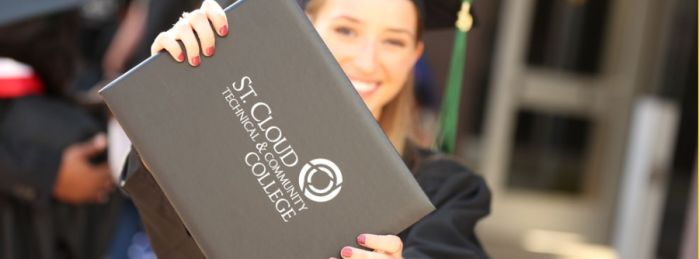
What IS a Transfer Pathway?
